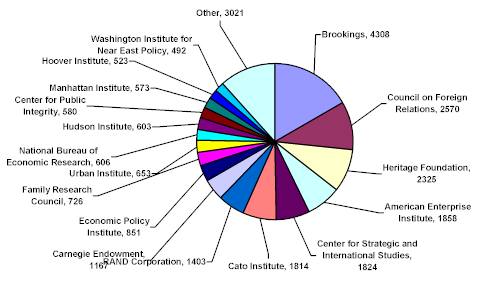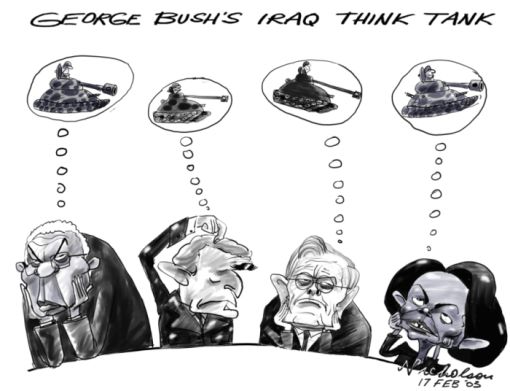The foundation of any healthy democracy is the availability of accurate and unbiased information. In order to make an informed decision about government representatives and policies, voters must be well-educated on important political issues. The quality of this political education is determined not only by childhood schooling, but also (and perhaps more importantly) by popular media and news sources. If citizens are presented with information that is inaccurate, out of context, or disproportionately focused, they cannot make informed voting decisions. This is, of course, uncontroversial. But institutions that claim to be working to make the public more informed are often doing the opposite. Such is the case with most of the so-called "think tanks", which have become increasingly influential over the past few decades.
 |
| Number of US think tanks, 1905-1995 |
Although the term "think tank" is relatively new, such privately-funded policy research centers date back to the 19th century. The first ones were created in Britain, including the Institute for Defence and Security Studies (1831) and the Fabian Society (1884). The first American think tank was the Brookings Institution, which was created in 1916. The growth of think tanks increased dramatically after 1971, when Associate Supreme Court Justice Lewis Powell wrote the Powell Memorandum. This document called for American corporations to invest massive amounts of money into research institutions that support the politics of free-market capitalism. Powell's motives may have been pure, if he truly believed that the findings of such research would be beneficial to the public if put into practice. But the reality is that most of these think tanks simply serve the interests of their corporate funders.
 |
| Citations of Think Tanks in Media (FAIR and IRmep, 2003) |
Perhaps the main reason that privately-funded policy research is so anti-democratic is simply the inequality of wealth in America. Because the richest individuals and corporations have so much more money than the vast majority, they can fund more research and thus have a louder voice in the think tank media circus. If the wealth was more evenly distributed, perhaps the findings of their research would be more in line with the public interest. Until then, we will have to learn to ignore the endless panels of "experts" that fill our airwaves with corporate propaganda.



No comments:
Post a Comment